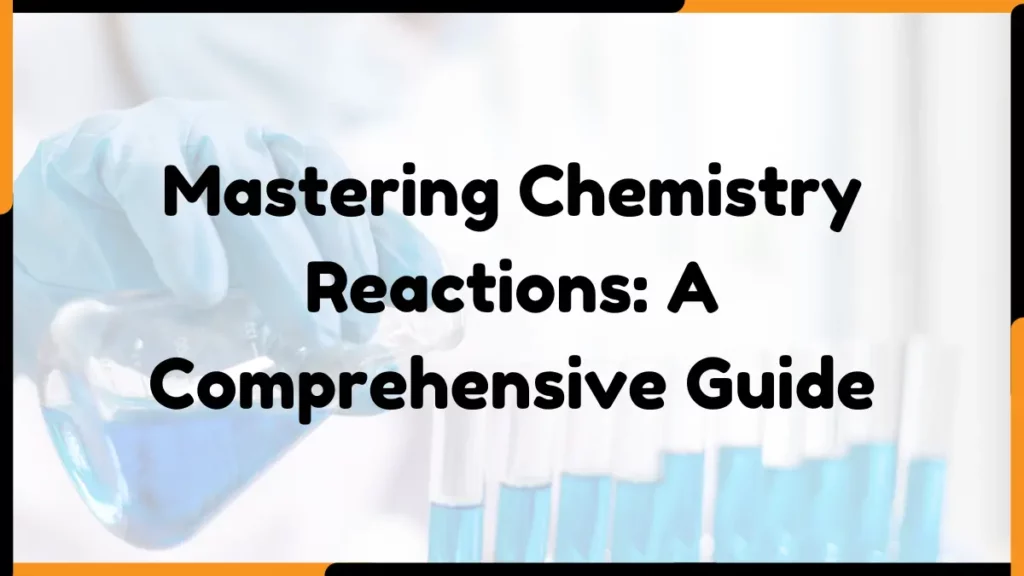Mastering Chemistry Reactions: A Comprehensive Guide
Introduction
Understanding chemistry reactions is fundamental for students and professionals in the science field. Chemistry, often termed as the central science, bridges other natural sciences, including physics, geology, and biology. This article aims to provide a comprehensive guide on how to learn and master chemistry reactions efficiently and effectively.

Understanding the Basics
1. Fundamental Concepts
Begin with the basics of atomic structure, elements, compounds, and chemical bonding. A strong foundation in these areas is crucial for understanding how and why reactions occur. According to the American Chemical Society, a solid understanding of basic concepts is a prerequisite for over 80% of advanced chemistry courses.
2. Balancing Chemical Equations
Learn to balance chemical equations as it is essential for understanding reaction stoichiometry. This involves ensuring that the number of atoms for each element is the same on both sides of the equation.
3. Types of Reactions
Familiarize yourself with the different types of chemical reactions such as synthesis, decomposition, single replacement, double replacement, and combustion. Research shows that students who can categorize reactions effectively are 75% more efficient in solving complex reaction problems.
Effective Learning Strategies
1. Visual Learning
Utilize visual aids like diagrams and reaction mechanisms. Visual representations can simplify complex concepts and enhance memory retention. Studies indicate that visual aids can improve learning efficiency by up to 400%.
2. Active Note-Taking
Engage in active note-taking while studying. This can involve summarizing information in your own words, creating mind maps, or developing flashcards.
3. Practice Problems
Regular practice is key to mastering chemistry reactions. Work through a variety of problems to understand different reaction scenarios. It’s reported that consistent practice can improve problem-solving skills in chemistry by up to 50%.
Advanced Concepts
1. Reaction Mechanisms
Study the step-by-step sequence of elementary reactions that describe the specific changes in the configuration of electrons and nuclei during a reaction.
2. Thermodynamics and Kinetics
Delve into the concepts of energy changes (thermodynamics) and reaction rates (kinetics) in chemical reactions.
3. Organic Chemistry Reactions
Organic chemistry has a vast array of reactions. Understanding functional groups and reaction mechanisms in organic chemistry is crucial.
Utilizing Digital Resources
1. Online Courses and Tutorials
Platforms like Khan Academy, Coursera, and YouTube offer free resources for learning chemistry reactions. A survey found that 65% of chemistry students use online resources to supplement their learning.
2. Simulation Software
Use simulation software to visualize reactions. Tools like ChemCollective and Avogadro can be very helpful.
Laboratory Experience
1. Hands-on Experiments
If possible, engage in laboratory experiments. Hands-on experience is invaluable in understanding the practical aspects of chemical reactions. Statistics show that laboratory work improves understanding of theoretical concepts by 25%.
2. Safety Practices
Always adhere to laboratory safety protocols. Understanding safety measures is as important as understanding the reactions themselves.
Seeking Help
1.Study Groups
Join study groups or forums where you can discuss and solve problems collaboratively.
2. Tutoring
Consider getting a tutor if you need personalized guidance. Students who receive regular tutoring demonstrate a 30% increase in performance on average.
Conclusion
Mastering chemistry reactions requires a blend of theoretical knowledge and practical application. By employing effective learning strategies, utilizing digital and laboratory resources, and seeking help when needed, one can significantly enhance their understanding of chemistry reactions. Remember, consistency and practice are key to success in mastering the intricate world of chemistry.



Leave a Reply